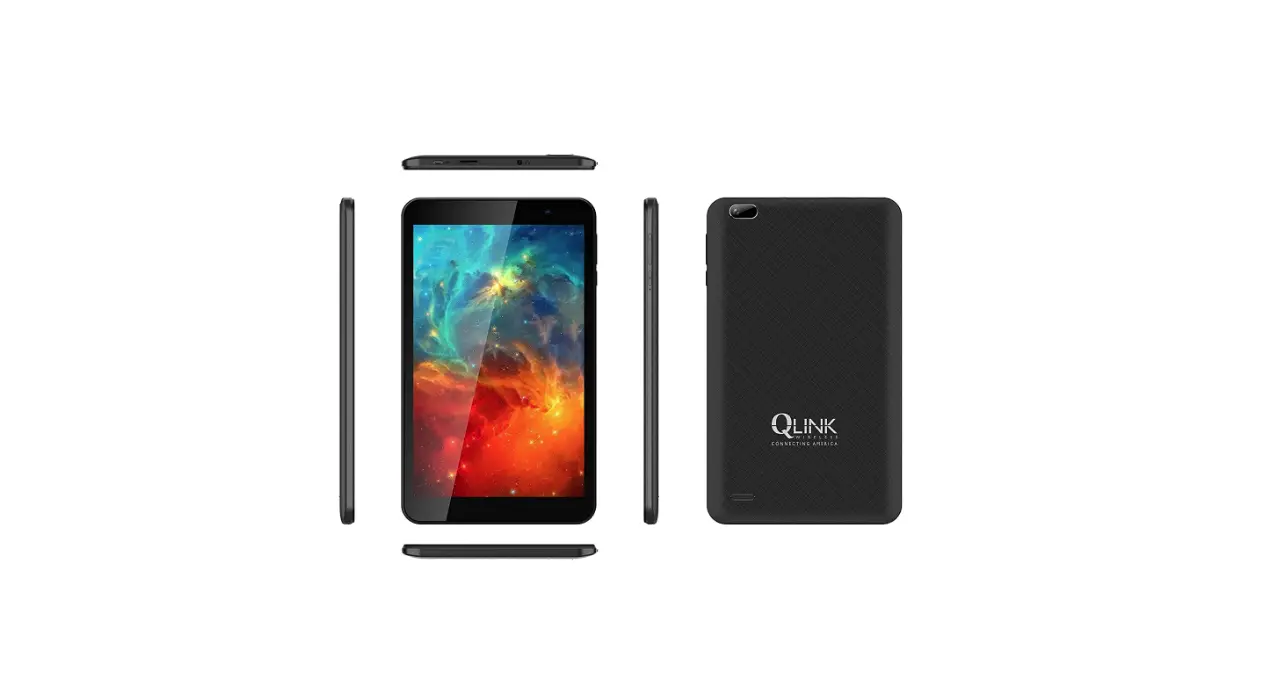What is Qlink Hotspot Data Allocation?
Qlink Hotspot is a revolutionary platform that provides decentralized mobile network services, offering users a unique way to share and monetize their unused mobile data. Qlink Hotspot data allocation refers to the process of distributing and managing data usage on the Qlink network. This innovative system ensures that users have access to a fair and efficient distribution of data, optimizing the utilization of available resources.
The Qlink Hotspot data allocation mechanism facilitates the seamless sharing and utilization of mobile data among users within the network. By leveraging blockchain technology, Qlink Hotspot ensures transparent and secure data allocation, promoting a decentralized approach to mobile network services. This empowers users to efficiently manage their data resources and contribute to the collective sharing economy.
Through Qlink Hotspot's data allocation system, users can effectively share their excess data with others in the network, promoting a collaborative and community-driven approach to data usage. This not only benefits individual users by optimizing data utilization but also contributes to reducing overall data wastage and promoting sustainability in the mobile network ecosystem.
In essence, Qlink Hotspot data allocation is at the core of the platform's mission to revolutionize the mobile network industry by fostering a sharing economy and empowering users to efficiently manage and monetize their mobile data resources. This innovative approach not only enhances the accessibility of mobile data but also promotes a more equitable and sustainable utilization of data within the network.
Overall, Qlink Hotspot data allocation represents a fundamental aspect of the platform's vision to transform the traditional mobile network landscape, offering users a decentralized and transparent system for sharing, managing, and monetizing mobile data resources.
How Does Qlink Hotspot Allocate Data?
Qlink Hotspot employs a sophisticated and transparent mechanism to allocate data within its decentralized mobile network ecosystem. The platform leverages blockchain technology to ensure secure and efficient data distribution, promoting a fair and collaborative approach to data allocation.
Decentralized Data Allocation
Qlink Hotspot's data allocation process is underpinned by its decentralized nature, which eliminates the need for traditional intermediaries and central authorities. Through the use of blockchain technology, data allocation transactions are recorded in a secure and transparent manner, fostering trust and accountability within the network.
Smart Contracts
Smart contracts play a pivotal role in Qlink Hotspot's data allocation framework. These self-executing contracts automatically facilitate and enforce the terms of data distribution agreements between users. By leveraging smart contracts, Qlink Hotspot ensures that data allocation transactions are executed seamlessly and securely, without the need for intermediaries.
Transparent and Immutable Ledger
The use of blockchain technology enables Qlink Hotspot to maintain an immutable ledger of data allocation transactions. This transparent record-keeping mechanism enhances the visibility and accountability of data allocation activities, providing users with a clear and auditable history of data distribution within the network.
Fair Distribution Algorithm
Qlink Hotspot incorporates a fair and efficient data distribution algorithm to allocate available data resources among users. This algorithm takes into account various factors such as user contributions, network demand, and available data capacity to ensure an equitable distribution of data resources, promoting a balanced and sustainable utilization of mobile data.
User-Driven Data Sharing
The platform empowers users to actively participate in the data allocation process by sharing their excess mobile data with others in the network. This user-driven approach fosters a collaborative sharing economy, where individuals can contribute to and benefit from the collective pool of available data resources, promoting a sense of community and mutual support within the network.
Empowering Data Management
Qlink Hotspot's data allocation system not only facilitates the sharing of mobile data but also empowers users to efficiently manage and monetize their data resources. By providing users with the tools to monitor and control their data allocation preferences, Qlink Hotspot promotes a user-centric approach to data management, enhancing the overall user experience within the network.
In essence, Qlink Hotspot's data allocation process is driven by a commitment to transparency, fairness, and user empowerment. By leveraging blockchain technology and smart contracts, the platform ensures a secure and equitable distribution of data resources, fostering a collaborative and sustainable mobile network ecosystem.
Factors Affecting Qlink Hotspot Data Allocation
Several key factors influence the data allocation process within the Qlink Hotspot decentralized mobile network, shaping the fair and efficient distribution of data resources. Understanding these factors is crucial for users to effectively manage their data allocation preferences and contribute to the collaborative sharing economy facilitated by Qlink Hotspot.
-
User Contribution and Sharing Preferences: The extent to which users actively contribute and share their excess mobile data significantly impacts the overall data allocation within the Qlink Hotspot network. Users who actively participate in sharing their unused data contribute to a larger pool of available resources, influencing the distribution of data among network participants.
-
Network Demand and Usage Patterns: The dynamic nature of network demand and usage patterns plays a pivotal role in data allocation. Fluctuations in data consumption and user activity influence the allocation of available data resources, ensuring that the network adapts to varying usage demands while maintaining equitable data distribution.
-
Available Data Capacity: The total available data capacity within the Qlink Hotspot network directly influences data allocation. The platform's ability to effectively manage and allocate data resources is contingent upon the overall capacity, which impacts the fair distribution of data among users based on real-time availability.
-
Quality of Service Requirements: Certain applications and services within the network may have specific quality of service (QoS) requirements, affecting the prioritization and allocation of data resources. Qlink Hotspot considers these QoS requirements to ensure that critical applications receive the necessary data allocation to maintain optimal performance.
-
Market Dynamics and Pricing Mechanisms: The market dynamics and pricing mechanisms implemented within the Qlink Hotspot ecosystem can influence data allocation. Factors such as supply and demand dynamics, pricing models, and incentivization strategies play a role in shaping the allocation of data resources and promoting efficient utilization.
-
Blockchain Network Conditions: The underlying conditions of the blockchain network, including transaction volumes, network congestion, and consensus mechanisms, can impact the efficiency and speed of data allocation transactions. Qlink Hotspot adapts to these network conditions to ensure seamless and secure data allocation processes.
-
Regulatory and Compliance Considerations: Regulatory requirements and compliance standards may influence certain aspects of data allocation within the Qlink Hotspot network. Adhering to relevant regulations and compliance frameworks is essential in shaping the parameters of data allocation while upholding transparency and security.
By considering these factors, users can gain insights into the dynamic nature of data allocation within the Qlink Hotspot network, enabling them to make informed decisions regarding their data sharing and management preferences. This holistic understanding of the factors affecting data allocation fosters a transparent and collaborative approach to data utilization, aligning with Qlink Hotspot's vision of empowering users within a decentralized mobile network ecosystem.
Tips for Managing Qlink Hotspot Data Allocation
Managing data allocation within the Qlink Hotspot decentralized mobile network is essential for optimizing data usage and actively participating in the collaborative sharing economy. By implementing effective management strategies, users can make the most of their data resources while contributing to the equitable distribution of data within the network. Here are some valuable tips for effectively managing Qlink Hotspot data allocation:
-
Monitor Data Usage: Regularly monitoring data usage patterns and consumption habits is crucial for understanding individual data needs. By staying informed about data usage trends, users can make informed decisions regarding data allocation preferences and optimize their sharing activities.
-
Set Allocation Preferences: Qlink Hotspot provides users with the ability to set data allocation preferences based on their sharing capacity and usage requirements. By configuring allocation preferences, users can ensure that their data resources are distributed in alignment with their specific sharing goals and network participation.
-
Participate in Data Sharing: Actively participating in data sharing initiatives within the Qlink Hotspot network contributes to the collective pool of available data resources. By sharing excess data with other network participants, users not only foster a sense of community but also enhance the overall availability of data for all users.
-
Utilize Smart Contract Features: Leveraging the capabilities of smart contracts within the Qlink Hotspot ecosystem enables users to automate and enforce data allocation agreements seamlessly. By utilizing smart contract features, users can streamline the process of sharing and receiving data, promoting efficiency and transparency.
-
Optimize Network Contribution: Contributing to the network's data capacity through active participation and sharing fosters a sustainable and balanced data ecosystem. By optimizing network contribution, users play a vital role in enhancing the overall availability and fair distribution of data resources within the Qlink Hotspot network.
-
Stay Informed About Network Dynamics: Keeping abreast of network dynamics, including demand fluctuations and capacity changes, allows users to adapt their data allocation strategies accordingly. Staying informed about network dynamics enables users to make real-time adjustments to their data sharing activities.
-
Explore Incentivization Opportunities: Qlink Hotspot may offer incentivization mechanisms for active data sharing and network participation. Exploring incentivization opportunities allows users to benefit from their contributions to the data ecosystem, potentially earning rewards for their active involvement.
-
Engage in Community Discussions: Engaging in community discussions and forums within the Qlink Hotspot network provides valuable insights into best practices for data allocation and sharing. By participating in community dialogue, users can exchange tips and strategies for effective data management within the network.
By implementing these tips, users can actively manage their Qlink Hotspot data allocation, contributing to a sustainable and collaborative mobile network ecosystem while optimizing their data sharing and utilization experiences.

























